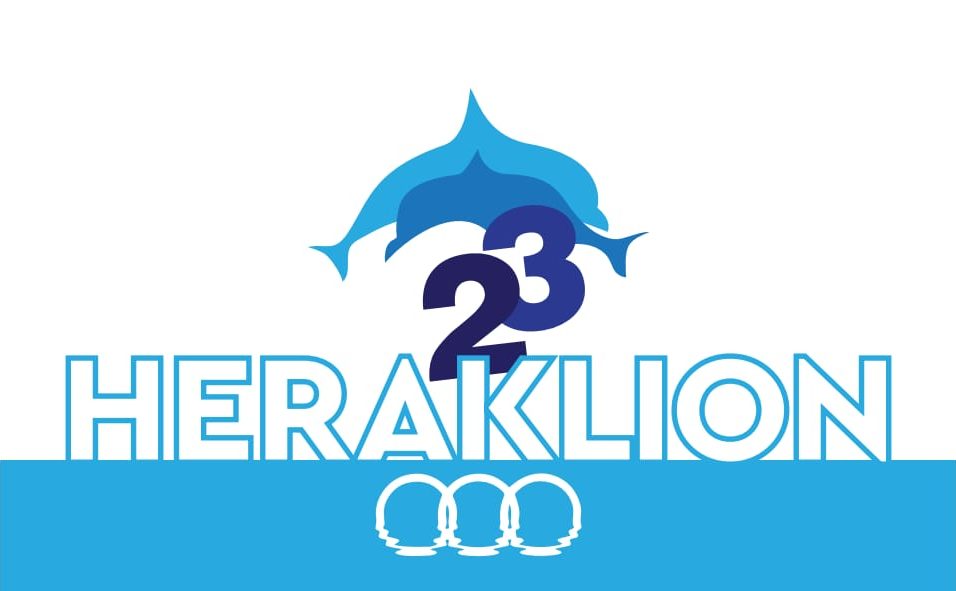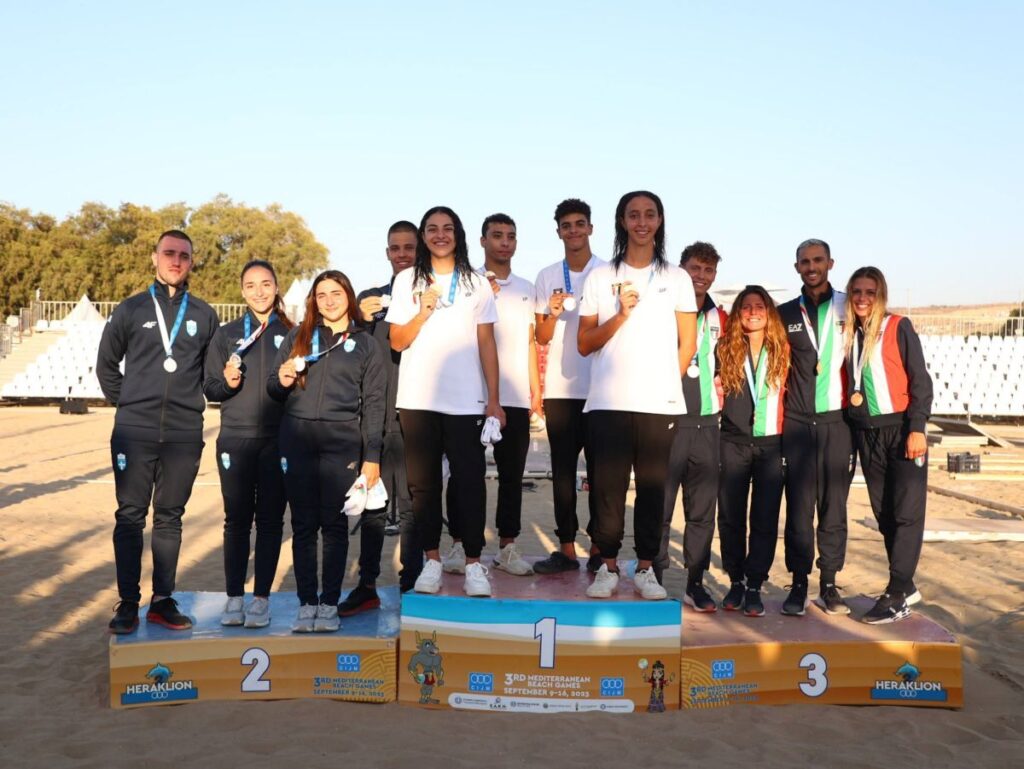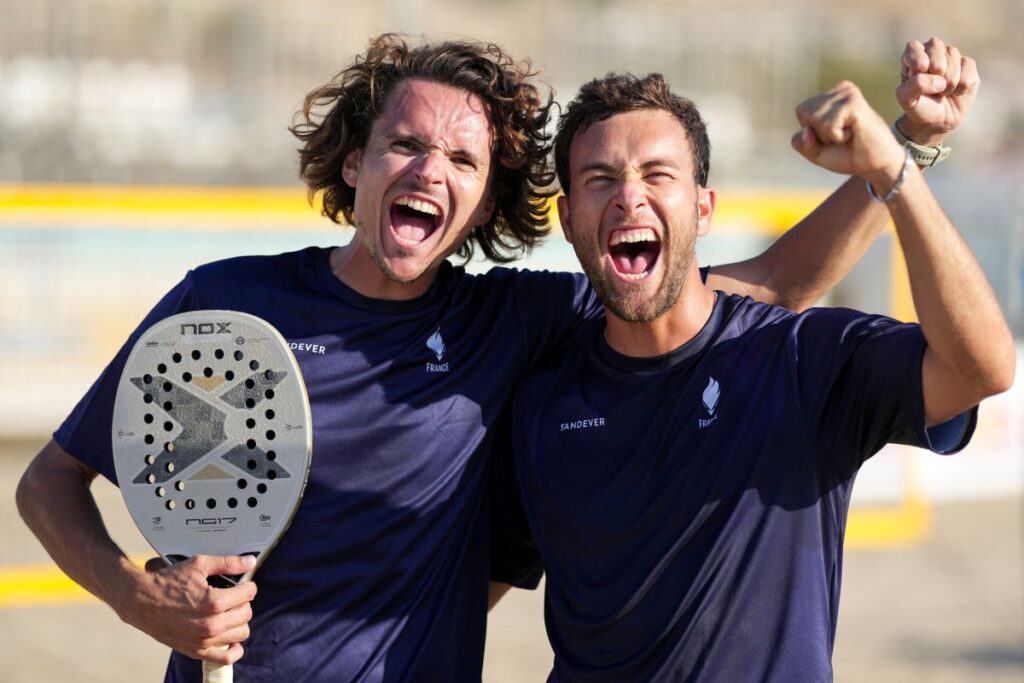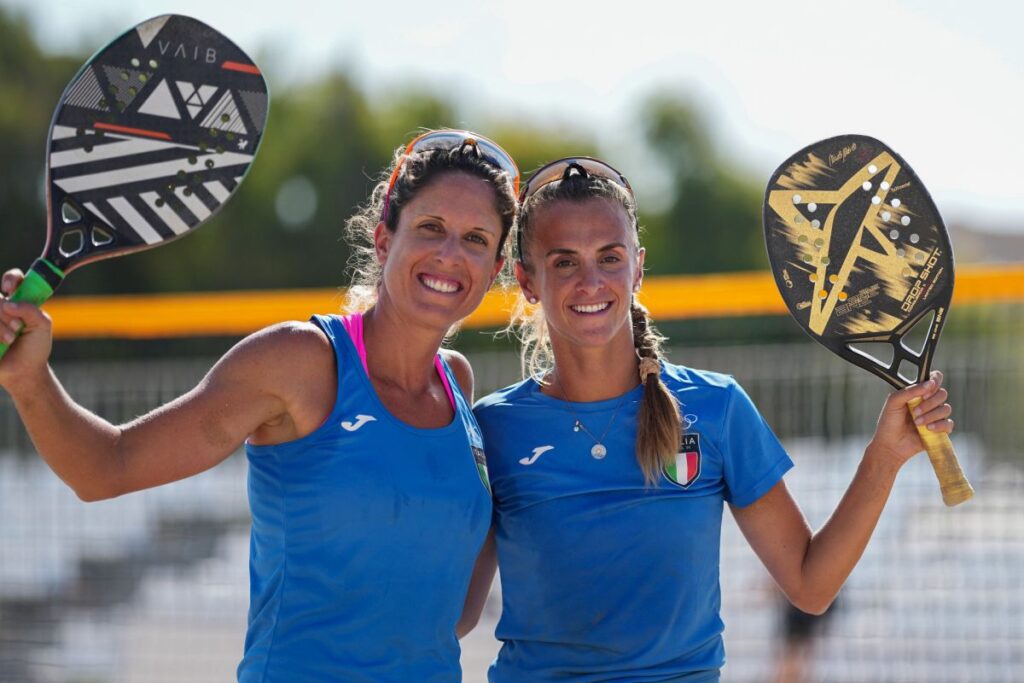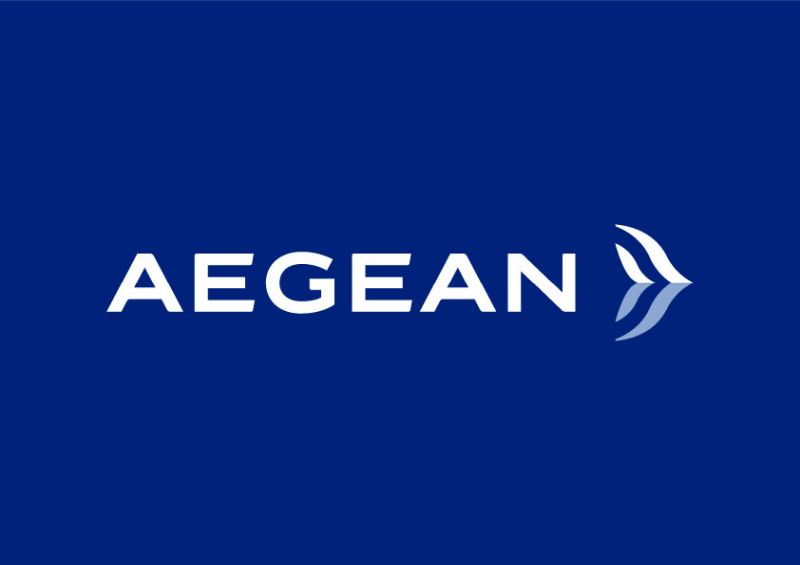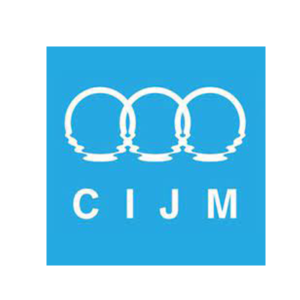World handball legend and Chef de Mission of the French delegation to Paris 2024, Jackson Richardson is in Heraklion for the 3rd Mediterranean Beach Games.
Greece and France fused their culture and ideals in the highest expression of sport, the Olympic Games. Pierre de Coubertin’s “blood” was transfused into the Greek “body” of the Olympic Games and the two countries were linked by eternal bonds after the revival of the top sporting event.
The Chef de Mission of the French team that will take part in the 2024 Olympics and also a legend of world handball, Jackson Richardson, points out the connection. The 54-year-old Olympic bronze medallist is in Crete and immediately made sure to find out if the French team is being properly served.
His major interest is clearly focused on Olympic sports as there is less than a year to go before the Paris Games. From the very first moment he was in Heraklion he has been on the side of the French team and has paid particular attention to the Olympic sport of beach volleyball.
“I first went to the beach volleyball court because it is an Olympic sport and I wanted to be in contact with our athletes.
I spoke to the leader of the French delegation in my capacity as Chef de Mission and he informed me that he is happy to be here, as is the whole team. They informed me that everyone is very satisfied with the event and that both their transportation and the team’s accommodation are very well organized. The athletes, coaches and team members are cooperating very well with the organization and they conveyed to me the very good impression they have formed these days about the 3rd Mediterranean Beach Games“.
Jackson Richardson, with short hair and without his famous dreadlocks, said without a second thought that his homeland France and Greece are the countries most closely linked to the dna of the Olympic Games.
“The Olympic Games have a special meaning for Greece and France. For example, Greece gives us the Olympic Flame from Ancient Olympia and we have Pierre de Coubertin, who revived the Olympic Games, and also French is one of the two official languages of the event. That’s why we can say that the two countries are the most connected to the Olympics,” Jackson Richardson said, referring to the lifelong bond between the Greeks and the French.
It goes without saying that he also referred to the Paris Olympics and the preparation of the French team.
“These will be very special Games for us, because we are the organizers and the preparation of our athletes started quite early.
This year, the French Olympic Committee decided to appoint the Chef de Mission early so that he could also be involved in the preparation. However, despite the fact that I am in this position, our work is a team effort to find the best ways to prepare our athletes and to really be there for them and serve their needs in the best way possible.
That’s what I learned from handball and that’s what I’m using in my new position. I want the team spirit and teamwork, I want us to be a family and we have to work as a team with everyone from all sports and also the members of the French Olympic Committee.
I will add this handball background to my new post so that we can all achieve our goals together. We are individuals, but without the team our goals are not possible.
What I want to pass on to our athletes is the collective metal. There should be no one star, everyone should be equal and no one should stand out. The great athletes to be close to the younger ones, the rookies in the Olympics.
It’s not my role to be strict with the athletes. That’s their coach’s job. I’m their biggest brother and their biggest supporter, whether they’re unhappy or happy, whether they have medals or not.”
The French handball legend entered the Olympic Stadium in Athens on 13 August 2004 as the flag bearer of the French team. This opening ceremony changed the norm for French flag bearers, as Mr Richardson explained.
“I have a special connection with Greece and it is a great pleasure to be back here again. The fact that I was a flag bearer for the French team at the 2004 Olympics is a special memory for me. Back then, the ‘rules’ were “broken” in France, because I was not an Olympic gold medalist and all our previous flag bearers were all title holders.”
Jackson Richardson still 18 years after his retirement from France national team, he remains in the spotlight. He holds and will probably continue to hold the title of the all-time leader in appearances for many years to come, having played in 417 matches.
“There is a secret to maintaining the record, but I won’t reveal it,” he humorously commented in response to a question about how it is possible after so many years to still be at the top of the list and then referred to French handball “From 2005 to 2018 French handball was dominant. Even
in years when the team was renewed due to the fact that some players completed their careers. Then many teams worked and they aimed to beat and surpass France in men’s and
women. In any case, France remains a great power, the level remains very high.”
The only active athlete in the top ten with all-time participations is Nikola Karabatic, who has 337,
but in a few months he will be 40! Asked if he would prefer if he could turn back the clock and have been teammates with Karabatic and Omeyer in the 1992 bronze medal Barcelona Games or if he had played in the 2012 team that won the Olympic gold medal he answered with disarming honesty. “The gold medal.”
The French Che de Mission also spoke about his new post: “Being chosen as mission leader is a personal moment because of the great distinctions I have had, but that’s not all. The sport is a team sport, the team helped me to achieve everything. that. Handball is what also deserves this distinction.”
From Reunion to the top of the world, Jackson Richardson was born on 14 June 1969 in an island in the Indian Ocean that is located under the French mainland.
He was recognized as the top player in the world in 1995, MVP of two World Cups (1990, 1995) and one EURO (2000). He played in 417 matches and scored 775 goals with the French national team, where he was captain for many years.
With the “Bleus” he won the bronze medal in Barcelona (1992) – as France’s flag bearer – and won two world titles (1995, 2001) and another four medals in the World Championships (1993, 1997, 2003, 2005).
At the club level, he won 14 titles, with five European trophies (Champions League, two Cup Winners Cup, one European Super Cup, one European Cities Cup).
